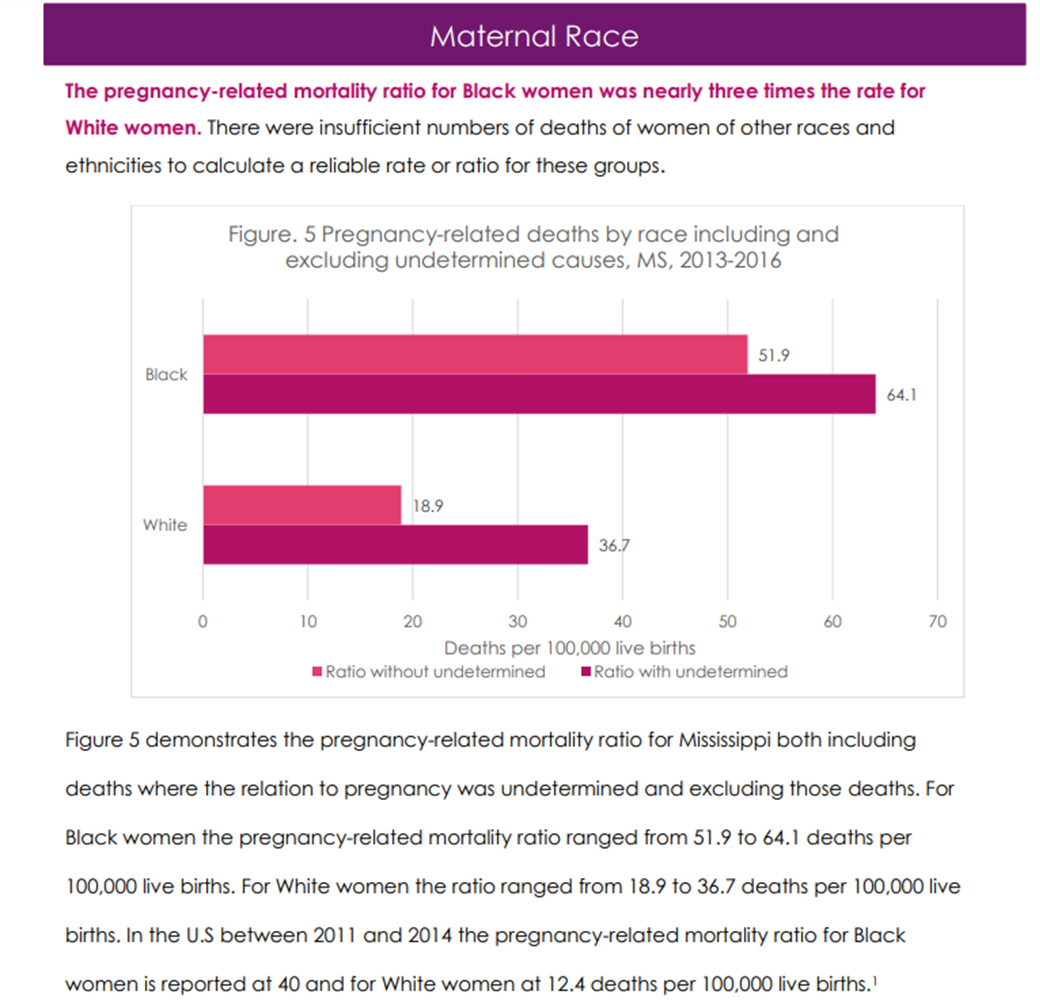Why We Must be Heard
Maternal health is universal, but Black Maternal Health is widely overlooked. April is National Minority Health Month, and this week (11-17) is Black Maternal Health Week (BMHW). BMHW is a time to bring awareness to disparities we face as black moms. It is easy for us to be overlooked, ignored, invisible, and pushed to the side. I have felt each of these and more during various times in my pregnancies. Take a look at this snapshot from Mississippi Department of Health Maternal Mortality Report.

Source: Mississippi Maternal Mortality Rate 2013-2016
She said, “You’re pregnant, and there isn’t anything I can do for you.”
During my last pregnancy, I experienced severe migraines. My doctor at the time refused to give me medication (a story for a different blog) to help ease them. Her only suggestion was to go to urgent care when they got “too bad”. At 27-weeks, while experiencing a 2-week migraine, I followed the doctor’s orders, and I went to urgent care. I went to a clinic I had frequented before pregnancy since they already had my information in their system, and I knew it would move things along quicker. I told the intake nurse how many weeks I was, my symptoms, and who my OB was. I said that it was fine if the doctor couldn’t treat me, and I would just go straight to the emergency room. She called the doctor in the back, relayed my information, and the doctor agreed to treat me. After a very extensive conversation about my medical and medication history surrounding my migraines, with a straight face, that doctor offered me over-the-counter, regular strength Tylenol. She said, “Well, you’re pregnant, and there isn’t anything I can do for you.” I will spare you the details of my reaction (let’s just say it surely wasn’t my finest moment). I reminded her that she knew I was pregnant before she agreed to see me. Before bursting out of that room, I made sure she knew that I was still leaving in pain, and she collected a check that day for doing nothing. I left out of that office enraged, embarrassed, and STILL with a debilitating migraine. I felt so invisible and belittled, and my husband felt helpless. I ended up going to the hospital, where I received prompt care and medication.
My doctor didn’t validate my pain…
To be honest, I couldn’t help but to also be angry with my OB for not validating my pain from the beginning, treating me with care, and not taking the necessary precautions to prevent such an event. Because she did not take my concerns seriously (for various reasons), I experienced pain for longer than I should’ve. This experience is just one of many that ignited my fire for self-advocacy and working with in the maternal health care world. I know, we don’t want to be labeled as the “angry black woman”, the loud one, or the needy one. Black women have DIED trying not to be a stigma, not to cause trouble, not to bother anyone, and being silenced by the providers who took an oath to treat us. I employ every mom and/or mom-to-be to do whatever you need to do to be heard. Yes, they are the medical professionals we entrust to know best and to take care of our needs, just remember, you are the expert of your own body, and you know when something is wrong. Fight for yourself and your children, and don’t stop until you get the answers you’re looking for.
XOXO,
Whitney

